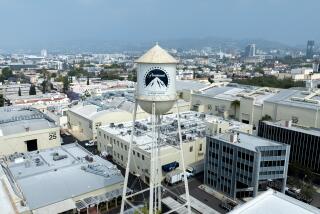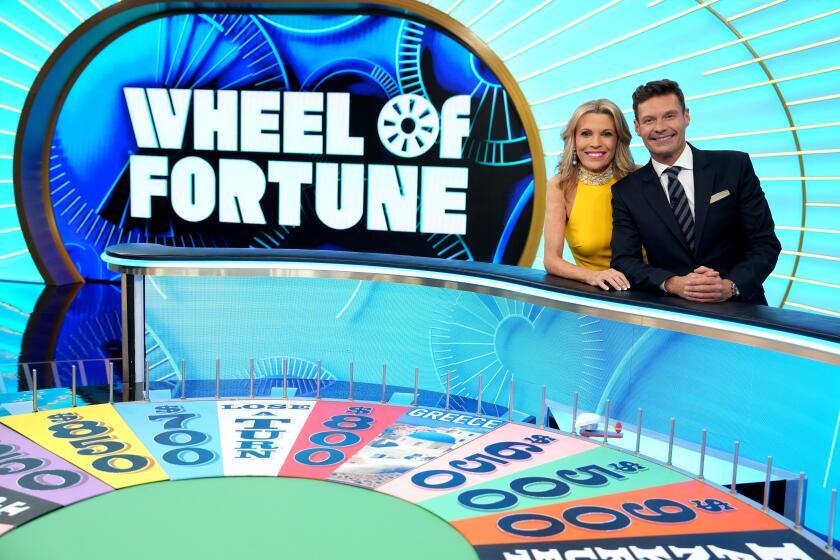Iconic book publisher Simon & Schuster is on the auction block
In the literary world, they are known as the Big Five — the handful of companies that dominate book publishing.
Soon, there might be only four. On Wednesday, ViacomCBS announced that it was looking to sell legendary book publisher Simon & Schuster.
The move comes just three months after the merger of Viacom and CBS. The company’s new leadership has concluded that the New York publishing house, known for the works of such authors as Stephen King, Susan Orlean, Bob Woodward and Hillary Clinton, no longer is a core part of the company.
ViacomCBS Chief Executive Bob Bakish said during an appearance at the Morgan Stanley Technology, Media & Telcom Conference that he’s fielded several unsolicited inquiries about whether the company would divest the iconic publisher. And the answer is “yes.”
“It is not video-based,” Bakish said. “It does not have a significant connection to our broader business.”
It is unclear how much ViacomCBS, which has owned the publishing house for more than 25 years, might fetch from the sale. Book publishing is no longer a growth business, but its revenue has been relatively stable in recent years and a bestseller still can be quite lucrative.
Simon & Schuster has some of the world’s most recognizable authors, including Mary Higgins Clark, Doris Kearns Goodwin and David McCullough. It ranks fifth worldwide, behind Penguin Random House, Hachette Livre, HarperCollins and Macmillan Publishers.
Simon & Schuster probably will be sold to another publishing firm looking to merge assets and create cost savings. Potential buyers may include Rupert Murdoch’s News Corp., which owns HarperCollins; the French company Lagardère Publishing, which owns Hachette Livre; German media giant Bertelsmann, which owns the majority stake in Penguin Random House; or perhaps a private equity firm such as KKR, which has shown interest in digital publishing.
Since Amazon emerged as the dominant bookseller, publishing houses have scrambled to preserve their influence in the market and there have been several consolidations.
In December, Bertelsmann announced that it would pay $675 million for the remaining 25% stake in Penguin Random House from the British firm Pearson, which would make Bertelsmann the sole owner of the world’s largest book publishing operation. That deal is undergoing regulatory review.
Bertelsmann’s move to own all of Penguin Random House came six years after it and Pearson stunned the industry by combining Penguin and Random House. That tie-up, which trimmed the Big Six to five, prompted others.
Since 2013, Hachette Book Group has acquired several smaller firms, including Hyperion from Walt Disney Co., Minnesota-based Meadowbrook Press and the Perseus Books Group. In 2014, News Corp. acquired the romance novel giant Harlequin Enterprises, based in Toronto.
When the stand-alone CBS controlled Simon & Schuster, the company created synergies by booking its authors on “60 Minutes,” which explored timely and provocative subject matter. In addition, CBS parlayed Simon & Schuster’s relationship with King to create such television shows as “Under the Dome.” But now the publishing house is part of a larger corporation that is eager to sell assets to pay down debt.
“We are a great publishing house and one of the world’s best known publishing brands, with an incredible legacy and bright future,” Simon & Schuster Chief Executive Carolyn Reidy wrote in a memo Wednesday to her staff. “We have a tremendous track record of producing best sellers in every category and format, and for readers of every age.”
Simon & Schuster was founded in 1924 by Richard L. “Dick” Simon and M. Lincoln “Max” Schuster. Their initial project was a crossword puzzle book, which was a roaring success.
The company has since grown to become a diverse house that publishes approximately 2,000 titles a year. Its divisions include Simon & Schuster Publishing, Scribner Publishing Group, Atria Publishing Group and Gallery Publishing. Simon & Schuster and its imprints have won 56 Pulitzer Prizes and numerous National Book Awards and Newbery and Caldecott Medals.
ViacomCBS’ stock has been bludgeoned since the merger was announced in August. Back then, the two companies together were worth nearly $30 billion. But since the combination was completed in early December, shares have continued to decline. On Wednesday, ViacomCBS shares closed up 2 cents at $23.10, valuing the business at less than $14.5 billion.
The company previously announced the sale of the landmark CBS headquarters building in Midtown Manhattan, known as Black Rock. ViacomCBS plans to use the proceeds from the two sales to pay down debt, pay dividends to shareholders and buy back stock.
“It’s a tremendous value creation opportunity,” Bakish said.
More to Read
Inside the business of entertainment
The Wide Shot brings you news, analysis and insights on everything from streaming wars to production — and what it all means for the future.
You may occasionally receive promotional content from the Los Angeles Times.











